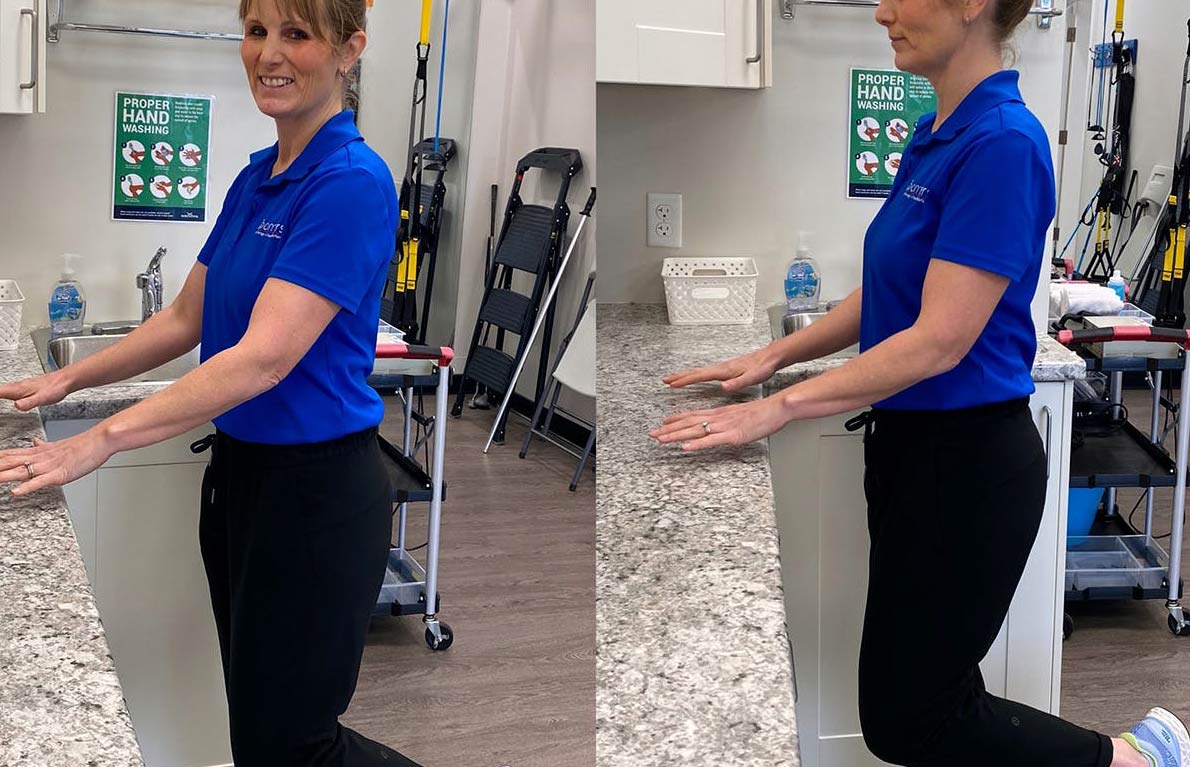Book an assessment with Zoomers now!
Use our online booking tool to find a time that works for you!
Have you ever tripped in the dark? Are you more cautious walking outside at night? Do you hold the handrail on the stairs more firmly when the lights are dim? These are some of the common things that I hear from my clients as a physiotherapist in Halifax.
The question is this: did you ever stop to wonder why our balance seems worse in the dark?
One of the key systems that contributes to our ability to balance is the visual system. Our eyes give our brain information about our environment. When I work with clients as a physiotherapist in Halifax, I often use the example that the message from our eyes to our brain might be, “the sky is up, the ground is down and my body is positioned correctly.”
When the light is low, it’s much harder for our eyes to send our brain accurate and timely information about our environment. It can certainly be easier to trip on an object you don’t see due to poor lighting, but it is also just more difficult to maintain your balance when the lights are down (or out!). Unfortunately, poor lighting has led to quite a few injuries I’ve come across throughout my years working as a physiotherapist in Halifax.
You can test this theory out for yourself if you feel safe to do so. If you have a history of falls or feel unsteady, please check in with your doctor or physiotherapist before trying these tests. Even if you feel confident in your balance, when trying these tests, always position yourself with a sturdy surface in front of you (i.e. countertop) and perhaps even a chair behind you. Throughout this test, keep your hands close to the sturdy surface but don’t touch it unless you need to grab it for safety.
Start by standing with your feet touching each other side by side for 10 seconds. If this is easy, try again but close your eyes as you hold the position. As soon as you start to feel off balance or sway, open your eyes and put your hands on the countertop. If this position felt easy to do, try standing on one leg for 10 seconds. First try with your eyes open, then with your eyes closed.
Was it harder with your eyes closed? The answer is likely that yes, it was. When I do this test in the clinic as a physiotherapist in Halifax, I’m almost always met with a look of disbelief from my clients as they wonder how their balance changed so much with their eyes closed.
While we don’t walk around with our eyes closed, there are often times when our visual information isn’t clear due to low lighting and other factors. In these cases, our brain relies more on other systems to maintain our balance. Luckily, these systems can be improved with the help of a Zoomers physiotherapist in Halifax.
One of these systems that I often talk about as a physiotherapist in Halifax is the proprioceptive system, which involves messages from our muscles and joints. These messages tell our brain how the different parts of our body are positioned relative to one another. For instance, it allows us to know the position our feet are in, even if we aren’t looking at them.
Proprioception can be compromised when we have muscle and joint injury or pain and weakens as we age. But, having said that, there’s good news too — it’s almost always trainable and something that a physiotherapist in Halifax can help you with!
Meeting with a Zoomers physiotherapist in Halifax to discuss which exercises are appropriate for you to improve your proprioceptive system is a great way to increase your confidence and safety when the lights go out!
Book an assessment with Zoomers
Use our online booking tool to find a time that works for you!


